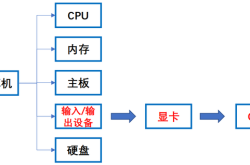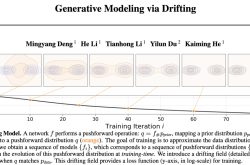AR unicorn Rokid's dilemma: Ecosystem, content, and scenarios need improvement
![]() 11/22 2024
11/22 2024
![]() 576
576

Rokid is shifting its strategy from a single, vertical AR track to an AI+AR track. While this two-pronged approach seems more stable, there are varying degrees of absence in its ecosystem layout, content supply, and application scenarios.
Over the past ten years of entrepreneurship, the AR unicorn Rokid has released a series of products with prominent AR identifiers, such as the consumer-grade AR smart glasses Rokid Air, Rokid Max, Rokid AR Spatial Computing Suite, Rokid AR Entertainment Suite, and Rokid AR Lite.
At the Rokid Jungle 2024 Partner and New Product Launch Conference on November 18, Rokid unveiled two glasses products. One is the new-generation AI+AR glasses Rokid Glasses, a collaboration with Bolon, priced at 2499 yuan, with a launch date set for the second quarter of 2025. The other product is an AI smart camera glasses, with no information yet on its release date or price.
The "Digital Intelligence Research Club" found that amidst the AI wave, AR hardware unicorn Rokid's product layout is also moving closer to AI. Rokid Glasses have eliminated entertainment-focused features like movie watching and gaming, instead adding more features that cater to general public demand, such as AI Q&A search, AI translation, AI object recognition, AI quizzes, AI real-time navigation, and AI health reminders. Of course, products released before this conference continue to iterate within the AR domain.
In other words, Rokid is shifting its strategy from a sole AR track to an AI+AR track. This two-pronged approach makes Rokid appear more stable, but there are still varying degrees of absence in its ecosystem layout, content supply, and application scenarios.
Rokid still has a long way to go, with many lessons to learn.
AI+AR: A Two-Pronged Approach
At the conference, Rokid's Zhu Mingming mentioned a statistic: Over the past ten years, more than 300,000 users have actually purchased and used Rokid AR glasses. This number is acceptable for Rokid. However, regarding the new Rokid Glasses set to launch in the second quarter of 2025, Zhu Mingming stated a sales target of 300,000 to 500,000 units.
Selling 300,000 units in ten years and then aiming to sell at least 300,000 units in the following year – is this a confident display of Rokid's strength, or mere boasting? We'll have to wait until the end of next year for Rokid's report.
In fact, AR glasses are still considered a niche market. According to market research firm IDC, global sales of AR glasses were 480,000 units in 2023, while sales of smart glasses were 1.01 million units. In the first quarter of 2024, global shipments of AR glasses reached 100,000 units, a year-on-year increase of 56%, while shipments of smart glasses reached 260,000 units, a staggering 217% year-on-year increase.
In terms of market acceptance, the popularity and market growth of smart glasses far exceed that of AR glasses. History serves as a cautionary tale; even Apple's powerful Apple Vision Pro failed to make a splash in the global market, with many early adopters eventually shelving their devices.
The sluggish sales of AR devices, coupled with issues such as incomplete ecosystems, delayed content supply, and challenges in scenario application, have hindered the growth of AR glasses. Against this backdrop, since 2023, AR players like ThunderBird and XREAL have been layout AI technology. Xu Chi, the founder of XREAL, publicly stated, "AR is the best carrier for AI, and AI is the best interaction for AR."
Players have launched AR glasses integrated with AI technology. For example, InMo Technology's AR device INMO Go, weighing only 52g, is connected to a large AI model and supports real-time voice translation, AI training partners, and other functions. The sales of Meta and Ray-Ban's collaborative Ray-Ban Stories have surpassed 1 million units.
In August, ThunderBird and Boshi Optical established a joint venture. Based on ThunderBird's technology in AI+AR glasses and Boshi Optical's advantages in design and distribution channels, the two plan to launch their first new product by the end of 2024. Behind this powerful alliance lies the rapid integration of technology, market, and channels.
In September, StarTech released the StarV Air2 smart glasses, focusing on AI+AR, with functions not significantly different from previous products. At Baidu World 2024 in November, Baidu also unveiled its first Xiaodu AI glasses.
In the view of the "Digital Intelligence Research Club," over time, there has been a consensus on the development of AI+AR glasses in the market. With increasing competition, established player Rokid certainly does not want to miss out on the potential commercialization of its years of accumulated technology. By stating a sales target of 300,000 devices in 2025, Rokid likely holds a very positive outlook on the prospects and market potential of AI+AR glasses.
There are still many shortcomings
The future of AI+AR glasses is bright, but the path ahead for Rokid is not without challenges.
Firstly, competition is intensifying. Players in vertical tracks like ThunderBird and XREAL, as well as domestic players like Baidu and StarTech, and international giants like Meta, Google, and Microsoft, surround Rokid. This competition is bound to force Rokid to increase investment in research and development, innovation, and marketing to avoid product homogeneity.
Fortunately, the industry is still in its nascent stages, with no mature industrial chain, hardware standards, or well-developed software ecosystems. It's a free-for-all, and it's unclear who will emerge victorious. However, domestically, according to the "2024 China AR Industry Development Insight Research," Rokid temporarily leads with a market shipment share of nearly 30%, enjoying a temporary lead. But the future remains highly uncertain.
Secondly, Zhu Mingming has publicly stated that Rokid is essentially a system software company hidden behind hardware products. This highlights Rokid's ambitions – it is not content with merely manufacturing and selling hardware; it also aims to build an industry ecosystem, content supply, and scenario application.
Of course, this may also be related to the fact that the current AR industry is still in its early stages, lacking an operating system and content to showcase its true capabilities.
Regardless, Zhu Mingming's implication is that Rokid intends to build a comprehensive ecosystem from the ground up, encompassing hardware products, content supply and demand, and scenario application. China entered the "Year of AR" in 2016, but after years of development, there have only been a few eye-catching hardware products. Due to long profit timelines and high investments, there has been no new progress in ecosystem layout, with many AR glasses players unwilling to engage.
As a result, users often purchase AR glasses as a novelty, only to sell them on second-hand platforms like Xianyu once the novelty wears off.
Now, Rokid aims to tackle this tough nut. As an operating system company at heart, Rokid seeks to build a comprehensive ecosystem to maintain its industry-leading position in the future era of AR and spatial intelligence.
As long as Rokid remains in the game, it always has a chance. However, investments are a bottomless pit, and educating users' minds takes time. Let's hope Rokid can persevere to the end.








